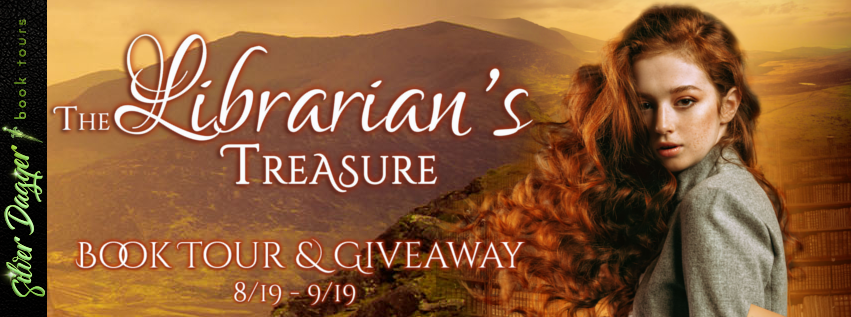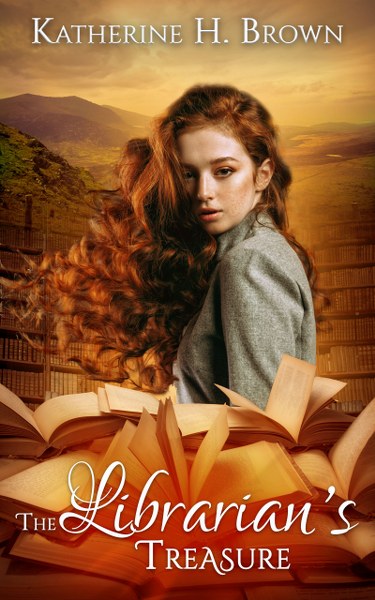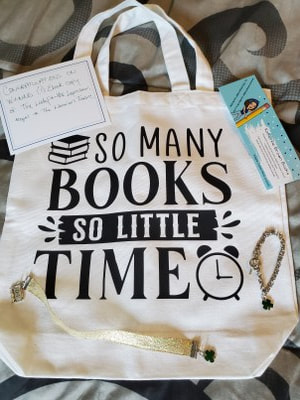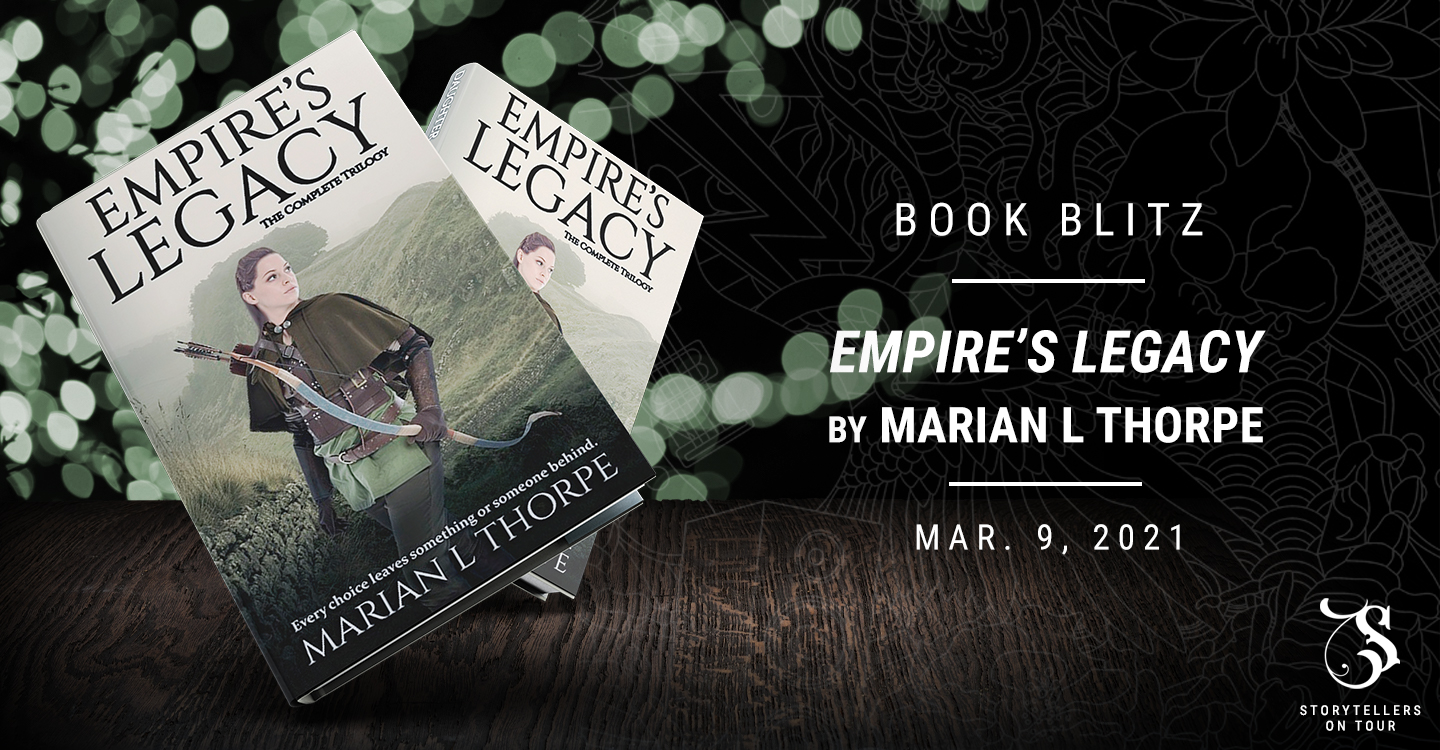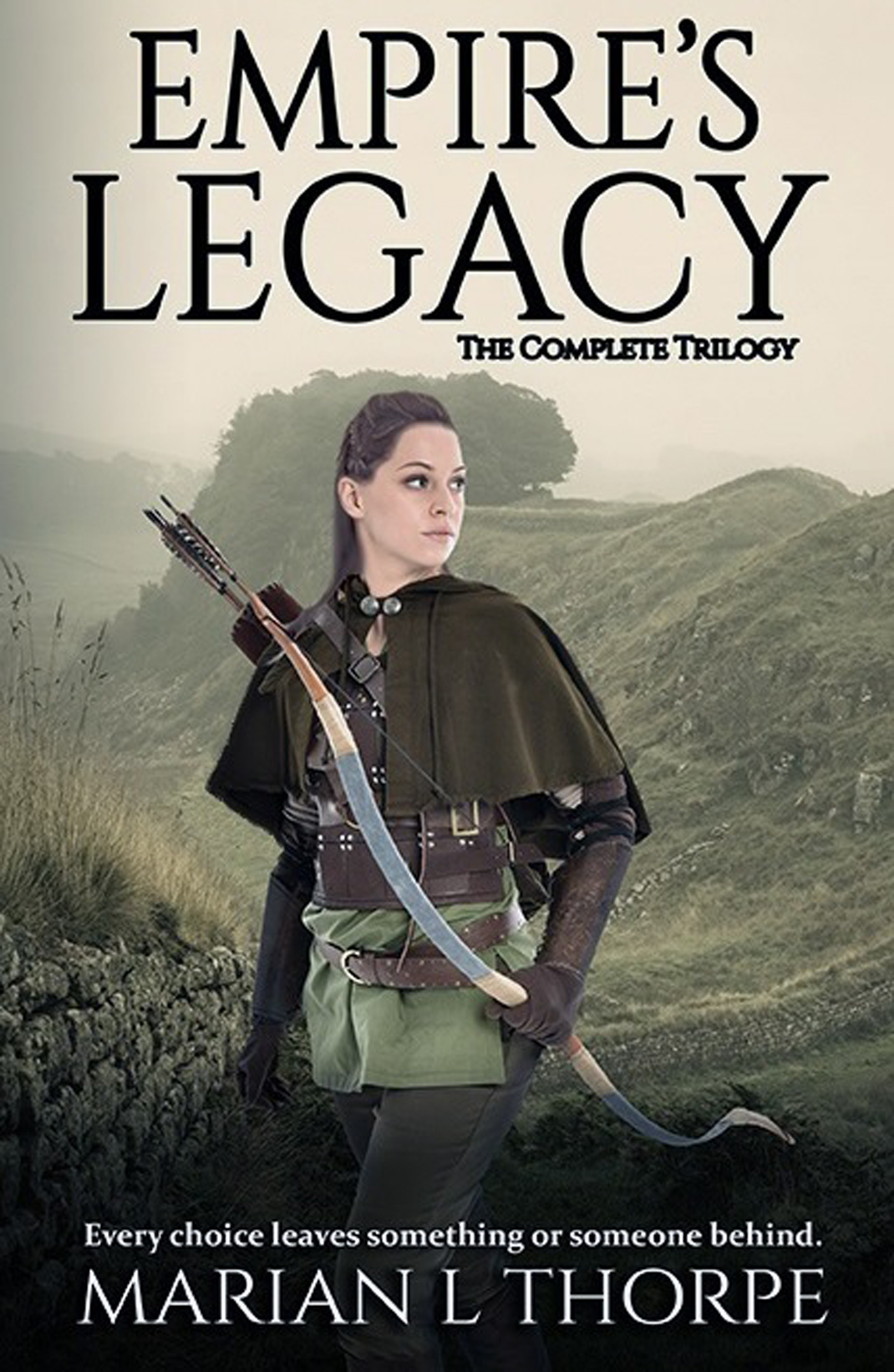
Empire’s Legacy
by Marian L Thorpe
Series: Empire’s Legacy (#1-3)
Published: November 6, 2019
Genre: Historical Fantasy, Low Fantasy
Age Group: Adult
Pages: 725 (Print Length)
Lena is a skilled hunter, but beyond the need to kill for food, weapons are a man’s domain – until one day a soldier arrives in her village, pleading for fighters. Accepting his challenge, she steps into a new life, one of battle, intrigue and politics, where actions have deadly consequences. Her survival – and that of her country – depends on her prowess with knife and bow, her quick wit, and a journey into unimagined lands to confront a lost Empire of immense power.
CW: Rape, Threatened miscarriage, Violence Possible Ultimate Tour Experience ticket(s): Represent, It’s All About the Journey, That Ship Has Sailed, Love Actually, I’m Not Crying You Are Crying, Storyteller in the House
Excerpt:
When Fél had led us into the village—if a cluster of huts was a village—we had been fed, clothed, stared at by children and adults, questioned. Fél, acting as our translator, convinced the headwoman to give us an empty hut at the edge of the village: it was dilapidated and damp, its mud-and-wattle walls crumbling, but easy enough to repair. I suggested we simply pitch our tents inside it, out of the wind. The work of repairing the building seemed too much for a brief stay.
Fél had shaken his head when I proposed this. “There is nowhere for you to go, Lena,” he had said. “Today’s weather is just the start: snow will come in the next week, and then a hard and killing frost, turning the ground to iron. And then more snow. Autumn Festival will barely be over in the Empire when it is winter, here.”
I had not known what to say. I had expected to travel for—how long? I hadn’t thought about winter, not really, expecting that once we had left the mountains behind we would leave the cold behind too. I thought how stupid that was: even the grasslands south of Tirvan were fierce and inhospitable in the winter. But how should I have known to expect a winter that came so soon?
“But can we stay?” Cillian had asked. “Can your people support two more mouths over the winter?”
“You can hunt, can you not?” Fél had replied.
“Yes, for small game,” Cillian answered. “Lena is experienced with larger animals.”
Fél sat back on his heels beside the fire. “The women of the Kurzemë do not hunt. That is a man’s job.”
“But I will not be a woman of the Kurzemë,” I said. “We need a place for the winter, not permanently.”
“Where will you go, in the spring?”
“East, across the plain,” I answered.
“Into the dead lands?” he asked. “We do not go far into them, only to a meeting place in the summer. There is little there to sustain life, and stories of huge bears on the plain.”
I glanced at Cillian. “What lies beyond the mountains and the seas,” I said softly.
“That story?” Fél said. He shrugged. “They are your lives. If you can hunt, you can stay. I will try to explain, to Grêt, the headwoman.”
“Lena.” He turned to me. “What skills have you, so I can be precise?”
“I fished, at Tirvan,” I said. “I am good with the hunting bow and the bird bow, and I can wield a sword. And a knife, in warfare or defense.”
“None of which are women’s skills here,” he replied. “Is there nothing you know that belongs to the skills of women, of hearth or healing?”
“A little of healing,” I said. “My mother was a healer and a midwife, but I was not her apprentice. What I know is very slight. And all the things I can do are skills of women, in the Empire.”
“Perhaps,” Fél said. “But you are not in the Empire any longer, nor will you ever be again. That may sound harsh,” he added, “but it is only truth, and a truth which you must accept. So you both must begin to learn the skills of a new life.” He stood. “I will speak to Grêt.” He turned to go, then hesitated, looking down at where we sat. “Are you together? Paired?”
“No,” I said. “Travelling companions, friends, nothing more.”
“Better that you let it be thought you are together,” he said, “if you do not want the attentions of every unmarried man here. Or woman,” he amended, looking at Cillian. “Grêt already assumed as much when she offered the hut: I suggest you do nothing to change that assumption.”
The hut, built of woven willow branches between upright posts, packed with mud and hair, needed a lot of repair. Fél brought his wife, Kaisa, and between them they taught us how to weave the branches and add the mud. Cillian proved adept at the weaving, his long fingers interlacing and twisting the thin branches rapidly and precisely. I packed mud and wool.
Grêt, the headwoman, had made Fél bring me to her. She had listened in silence, then spoke to Fél for some time. I didn’t think she sounded happy.
“Grêt says,” Fél told me, “she has heard of women like you: you belong to the huntress. She’s a goddess, here,” he added. “You can keep your weapons and use them, but there will be a price. You will not mix with the other women, although you will guard them, sometimes. If you do a man’s work, you must act like a man.”
“Which means?”
“You will be expected to hunt, and guard the sheep, and guard the women if they go far from the village. There are wolves here, and bears and other dangerous creatures. You will not join in the women’s rituals.”
Grêt shot another question at Fél. “She is asking about Cillian. Why he would want a woman like you, who does not tend his hearth and bear him children.”
“Tell her she must ask him.” I wasn’t going to try to invent a story for him.
He walked back to our hut with me. “You will need sleeping furs,” he said. “We have extras; Kaisa will bring them to you. She will not shun you, but she will need to be careful, or the other women will shun her too. You are choosing a hard road for the winter, Lena.”
Grêt may have said I would hunt with the men, but the men had other opinions. Especially Ivor, I learned: he refused to have me with him. Eryl, a man of Cillian’s age who seemed to be in charge after the aging headman, Ludis, simply shrugged. “You can hunt with me, or Audo,” Fél told me. “I am going to show Cillian our bow tomorrow; come with us, if you like.”
I considered. Cillian’s status here mattered, too. “No,” I said. “Perhaps I’d better not. Is there something else I can do?”
“Audo always likes company when he checks his snares,” Fél said. “He’s slow, you realize. Up here.” He tapped his head. “But you can go with him.”
Two heavy furs lay inside our hut when I returned, dark, shiny fur. Bear? I dragged them over to the sleeping platform. No-one slept alone here in the winter, Fél had said casually; children were sent to sleep with the elderly and unmarried youngsters shared beds with brothers and sisters or cousins. I was glad that Cillian and I were used now to sharing sleeping space. Even a few weeks earlier, he would have been uncomfortable.
For the first ten days I wondered if we’d made a mistake. The mild days suggested we could have kept moving. But overnight the weather changed: we woke to find snow up to our ankles, and more falling. After that, it was clear we had to stay.
Fél continued to act as translator and mentor, guiding us both through the expectations of the Kurzemë’s daily life. He had taught Kaisa, his wife, some of our common language, so she too could speak to us, a bit. But, unsurprisingly, Cillian began to learn the language quickly, and when at night we discussed what we’d learned about the Kurzemë, he taught me new words, so that I too began to understand what was said and could ask and answer questions.
Cillian had adapted to the larger hunting bow with ease. For someone who hadn’t touched a bow until only a few months earlier, he had become proficient rapidly, to my private chagrin: I thought he might be as good as I was, and I had taken years to be skilled. He joined the hunting parties regularly, for deer at this time of year. The carcasses were brought back to be butchered by the women, the meat being smoked for winter food. I could help with this, and did, to Grêt’s grudging approval. I had no skill in working the hides, although my secca, sharper than the women’s knives, proved useful in cutting the skins.
The grain harvest was another place I could contribute, joining in stooking and tying grain: scything was a skill I had never mastered. Nor could Cillian, to Ivor’s derisive laughter, although I noticed he found reasons not to spend much time at the hard, back-breaking work. Even children gleaned grain from the cut fields, the older boys killing both the rabbits and rats that lived among the stalks with well-aimed stones thrown from leather slings. As at Tirvan, the autumn hunt and harvest were a time of communal labour, punctuated by evenings of food and merriment. It had a familiar feel that both reassured me and made me remember what I had lost.
Only one thing, or rather, one man, made me truly uncomfortable. I could handle being an outsider, not really accepted by either the women or the men. Ivor, however, was another matter.
The problem had begun with guarding the sheep. Eryl led the guard; Ludis was too crippled and infirm now. He had asked me to join the men near the sheep pens one afternoon: a wolf had been seen, unusual at this time of year. He strode up beside me, his broad, open face smiling. He carried two bows and two quivers of arrows.
“Grêt tells me you are to guard,” he said. “I thought, maybe Lena needs a bow. I know you have one, but it is meant for birds, yes? So I brought one for you to use.”
“Thank you, Eryl,” I said. “That was thoughtful.”
“You should shoot it a few times, get used to it,” he suggested.
“I will,” He was right: with an unfamiliar bow, I wouldn’t be much use. Several other men and a couple of older boys had grouped themselves around something on the hillside. One of them, I saw with an inward shiver, was Ivor.
“Eryl, here,” one called. I followed him over to where the men stood. Eryl crouched in the dusk, looking at the ground. “Wolf scat,” he said, “fresh this morning. A young one, probably, pushed out of its pack.” He turned to me. “Have you ever seen wolf scat, Lena?”
“No,” I said, “I haven’t. All the wolves had been cleared out of our part of the Empire, although older women had stories of them raiding our sheep, too.” I crouched beside him, ignoring the other men. This was information I needed, and Eryl was the best tracker in the village. “How do you know it’s wolf scat, and not dog?” One of the boys made a derisive sound.
“Mostly from the little bones in it, and the amount of fur. And it comes to a point, see? Dogs shit more like people,” he said, “or at least like people when there’s lots of meat to eat.” He turned his head back and forth. “The wind is off the mountains, so expect it to circle around, come at the sheep from below. I want good archers down that side. You, Ivor, and you two.” He named two more men.
“Lena,” he said, handing me a bow. “Show me what you know.” There was no hesitation, no reluctance: this was a commander, assessing a recruit. I took the bow—it was of middling size, intermediate between my big hunting bow and a birdbow—found the grip, tested the spring in the wood. I felt the men watching me.
“What am I shooting at?”
“See the scar, on the trunk of that big oak?” I followed where he pointed. Ahead of me, uphill and a good distance away, a white patch gleamed in the sun. Not an easy shot, but not too difficult, either.
I nocked an arrow and drew, judging the pull. I released. The arrow hit the tree, but well below the scar. I heard a laugh. I shifted my stance slightly, thought about the wind, and shot again. This time the arrow hit the scar squarely, not dead centre, but close enough.
“Do it again,” Eryl said. I did. “Can you hit a running animal?” he asked.
“I can,” I replied. “I have hunted deer, with a larger bow. And birds and small game, of course, travelling over the mountains.”
“Then I want you down where the wolf is likely to come.” A sound of protest came from one of the men. Eryl turned. “I make the decisions, Karel,” he said.
“Eryl,” Ivor said, “the wolf will not come until dark. Shall we have a contest, to ensure your choices of the best archers are correct?” This was insolence, said to the hunt leader.
“You saw Lena shoot,” Eryl said mildly.
“A contest anyway? To pass the time?” Ivor suggested.
“All right,” Eryl said. “To pass the time. The same scar. Ivor, your idea, so you shoot first.” I wondered at this: why had Eryl given in to Ivor?
Ivor took his stand, raising his bow. A left-handed archer, I noted: not common. He aimed and released. His arrow hit the top left of the scar. He frowned and shrugged. Karel took his place, hitting the scar a bit lower, still to the left.
All the men hit the scar, and not all on the left side. Eryl, who shot just before me, hit almost exactly in the centre. I had watched carefully, not just the men, but the movement of treetops and lower shrubs in the wind. There was, I judged, a gusty wind off the hillside, unpredictable, swirling above the ground.
My turn. I nocked, drew, and waited. I watched the shrubs near the oak, still holding on to a few red leaves, leaves that showed their silver undersides when the breeze blew. When all I could see was red, I let the arrow fly.
It lodged itself in the oak immediately beside Eryl’s, to the laughter of one or two men and a string of invective from Ivor. Eryl turned on him.
“You wanted this contest,” he growled. “Your shot was worst of all. I misjudged earlier when I told you where to guard. Go above the pens, instead.”
I thought this was why Eryl had allowed the contest, but if I had been leading here, I would not have humiliated Ivor publicly. But the Kurzemë had their own customs, and Eryl outweighed Ivor by half.
We did not see the wolf that evening. Replacements came to relieve us some hours later. I walked back to our hut, the new bow in my hand: Eryl had told me to keep it. I heard footsteps behind me; turning, I saw Ivor and Karel on the path. I frowned. What were they doing here, at this end of the village? I stopped, dropping my hand close to my secca, always on my waist.
“Do you want something?” I asked.
“You are devanī, my mother says,” Ivor said. Belonging to the goddess of the hunt, it meant.
“So they say.”
“Devanī should share themselves with all men, for the good of the village and the hunt.”
“Devanī choose where the huntress’s blessings are bestowed,” I said, thinking quickly. “A good hunter has no need of her intervention.”
“Then you let Audo touch you?” Ivor sneered.
“Audo is not a hunter.” Not a good answer.
“Two boys have their manhood ceremony soon. A devanī should lie with them to make them skilled hunters.”
“You are not the vēsturni, Ivor,” Cillian said from the path ahead of me. “You trespass in areas that do not concern you.” He stepped closer, his bow in his hand.
“You tell me what does not concern me, stranger?” Ivor spat. Karel had said nothing.
“I tell you that I am the same as a vēsturni, in my own land, and that Aivar knows that. We speak of many things. Lena is devanī, yes, but she is also mine. Be careful, Ivor.” Cillian was taller than Ivor, and older, and there was authority and warning in his voice. Ivor hesitated.
“Do you forget my father is headman? You too should be careful.” He turned, stalking off into the night, Karel beside him.
“Thank you,” I said. “I’ve made an enemy there. I outshot him in a contest this afternoon.”
“Unwise,” Cillian said mildly. We had begun to walk back to the hut.
“I know. I realized that afterwards. I will try to make it look like a lucky shot if I can.”
“My apologies for claiming you as mine, Lena: I had no time to think of anything else.”
I laughed. “I didn’t mind. It’s what we want the village to believe, isn’t it?”
“I dislike implying I have control over you.”
“You did it for my safety,” I pointed out. “Why were you out, anyhow?
“I don’t know, really. I’m not guarding tonight. But I was uneasy about you for some reason, so I came to meet you.” We had reached the hut. Inside, the fire burned low, the pot of water we always left beside it steaming slightly. “Tea?” Cillian asked.
“Yes, but I can make it,” I said. We drank a steeped mix of leaves and berries. I unstrung the new bow and coiled the bowstring, putting it on a shelf before pulling off my outdoor tunic. I changed boots for indoor slippers of deerskin; beside me, Cillian did the same. I ran a hand across his shoulder. “Thank you again.”
I made the tea, and we sat by the hearth to drink it. The hut was cool, and would be cold soon, but there was enough warmth by the fire for a while. “Has Aivar said anything about what Ivor suggested?” I asked.
“No.”
“Could you ask him? I don’t want to ask Grêt. I’m not sure she’d tell me the truth.”
“I can. But you wouldn’t consider it?” He sounded shocked, I thought.
“Of course not! But if there is any such expectation, I’ll need to make up a different ritual to replace it, one I can say is from my land. I could probably handle kissing each of the two boys instead.” I sipped the tea. “There is an equivalent goddess in Linrathe, you said? Do you know anything about rituals?”
“Sorham, really, not Linrathe. I will have to think. She is not widely acknowledged, and there is little written about her. I can probably remember more about Casil’s goddess, and the Kurzemë will not know the difference.” He finished his tea. Standing, he offered me a hand up. “It’s getting cold. We should go to bed.”
We readied the hut and ourselves for the night. The hut would be cold, but not so cold that under the furs of the bed we needed to sleep closer to each other than the space demanded, for which I was glad: I still damped down desire, mostly successfully. I saw no sign that he was aware of my feelings. Given what he’d told me, I did not expect him to share them.
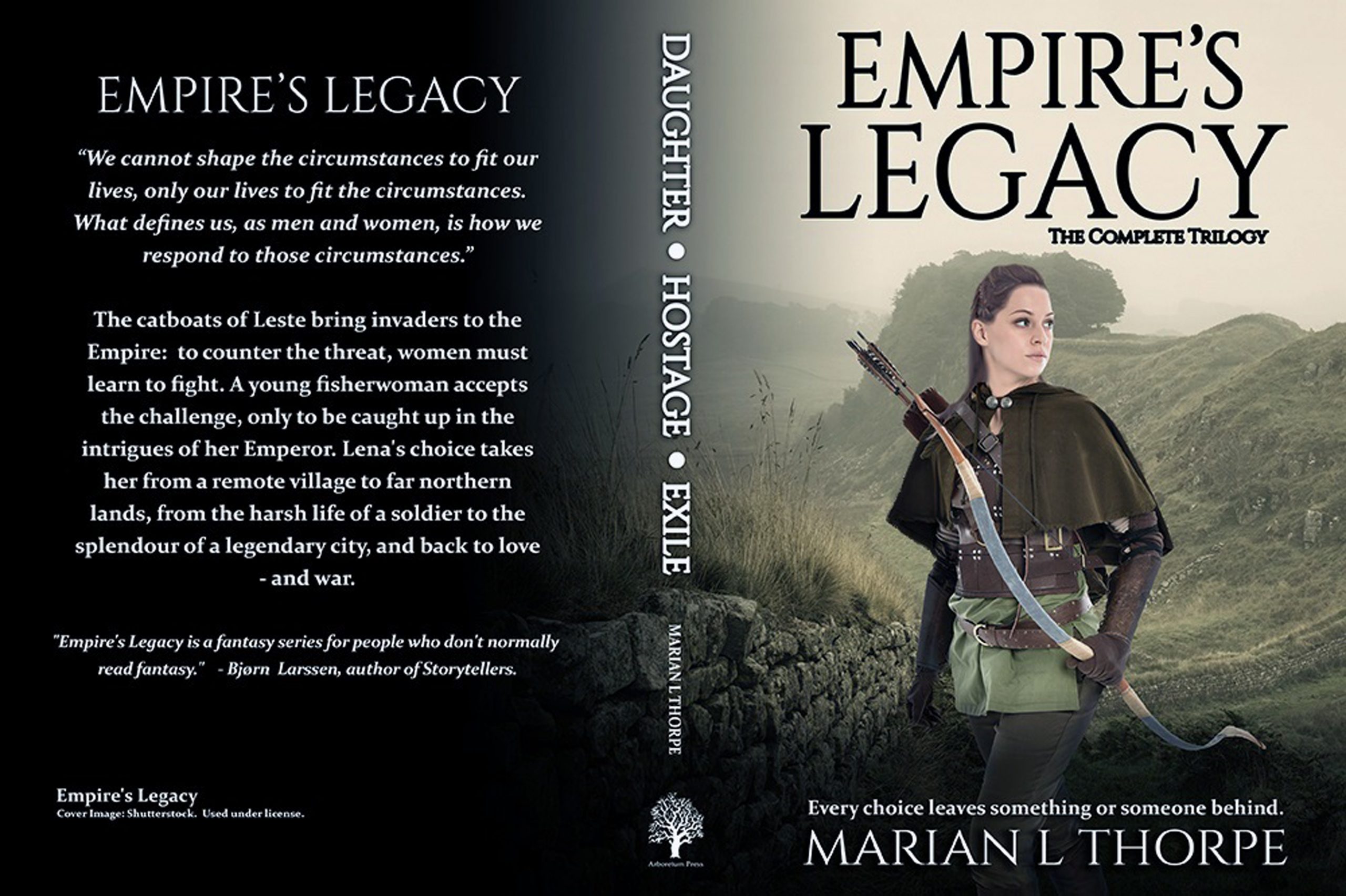
Goodreads / Ebook / Paperback

Author Info
My books are historical fantasy in that they are historical fiction of an imagined world, one that is close to Britain, Northern Europe, and Rome, but isn’t any of them. A world where a society evolved differently after the Eastern Empire left, where one young fisherwoman answers her leader’s call to defend her country, beginning a journey into uncharted territory.
After two careers as a research scientist and an educator, I decided it was time to do what I’d always really wanted and be a writer. As well as my novels, I’ve published short stories, both on-line and in chapbook format, and poetry. I’ve done public readings at several juried venues, including the Eden Mills Writers’ Festival. My life-long interest in Roman and post-Roman European history provided the inspiration for my books, while my other interests in landscape archaeology and birding provide background. Walking across England from the Irish Sea to the North Sea with my sister also had a major influence on the Empire’s Legacy trilogy!
I also oversee Arboretum Press, a small publishing imprint run as a collective. Right now, I’m writing Empire’s Heir, the next book in the series.

Website
Twitter
Facebook
Arboretum Press
Vocamus Press
Goodreads
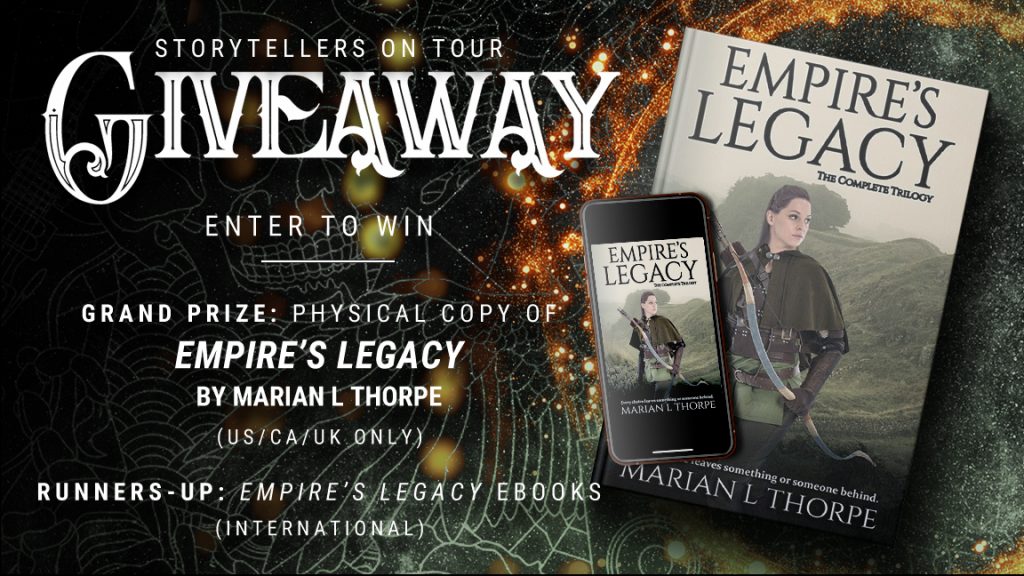
GRAND PRIZE: One (1) physical copy of Empire’s Legacy – US/CA/UK Only
RUNNERS-UP: Two (2) ebook copies of Empire’s Legacy – International
Starts: March 9th, 2021 at 12:00am EST
Ends: March 12th, 2021 at 11:59pm EST
a Rafflecopter giveaway


